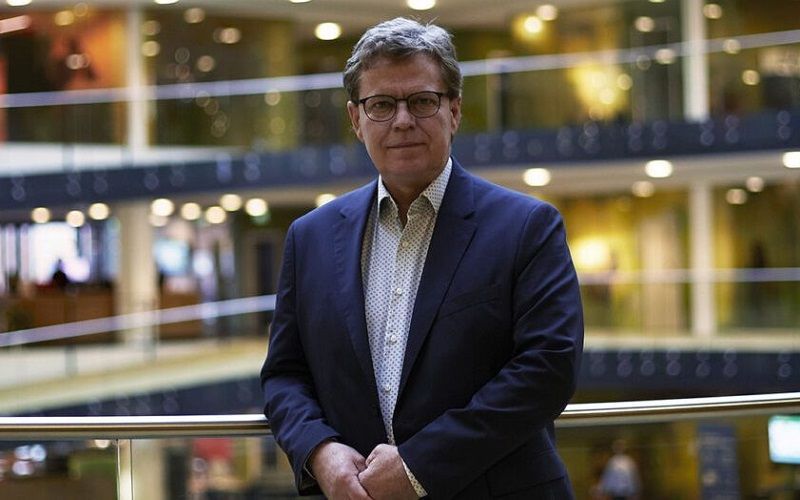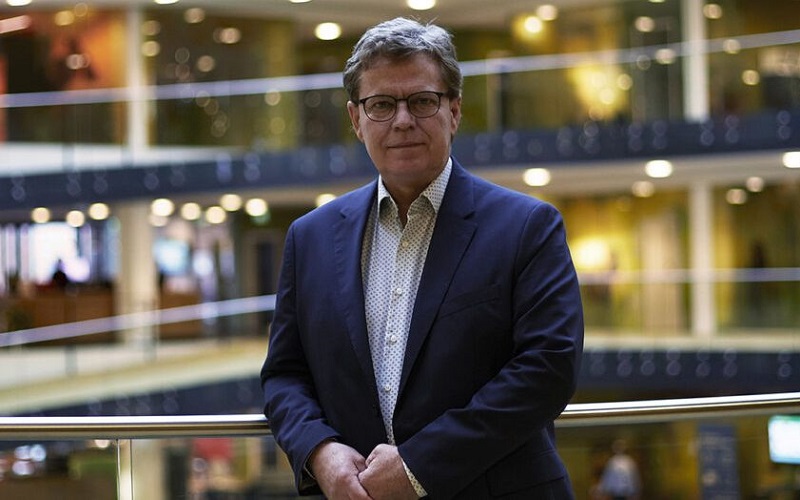Peder Tuborgh, CEO Arla Foods: “It’s in our DNA to become more efficient”


Peder Tuborgh, CEO Arla Food. Photo: Arla Foods
Profile: In 2002 Peder Tuborgh became head of the Nordic region of Arla Foods. In 2005 he took on the role of CEO, the youngest CEO in the company’s history. Arla Foods is the fourth largest dairy company in the world in terms of milk volume and seventh with respect to turnover. Under his leadership, the company has almost doubled its turnover and evolved fr om a Scandinavian organisation to a global dairy company with farmer owners in seven Northern European countries, an annual milk intake of 14 billion kg and sales in more than 120 markets.
Arla Foods puts a lot of effort into leading a sustainable dairy sector. What does 2023 and beyond look like in terms of the next big sustainability goals for Arla?
“We already have ambitious goals in place with 63% CO2e reduction in scope 1 and 2 and 30% reduction in scope 3 by 2030 – and ultimately carbon net zero by 2050 – and the next steps are to continue our journey towards those targets together with our farmer owners. In 2022, we announced a new sustainability incentive model which marked a historical change in our milk price. With that coming into effect this year, with the extensive data we have available and the strong collaborative mindset of our farmer owners, I believe that for Arla Foods it isn’t as much about setting new goals and making a big media splash out of that as it is about delivering on the ones we already have.”
There is a need to produce more with less in order to be more efficient. Wh ere do you think the sector can make even bigger strides in this area?
“Efficiency can mean many things, but it’s in our DNA as farmers and food producers to always improve and become more efficient. In my time alone, we have gone fr om having around 1.5 million cows in Denmark to around 500,000 today, producing the same amount of milk with a smaller impact on the environment. We need to build on this and continue, which is exactly what our incentive model is a catalyst for; it rewards the most efficient farmers and encourages everyone to take the necessary steps towards even more sustainable production. I think this is something deeply rooted in our sector already and we simply need to create an environment wh ere the efficiency mindset thrives and is rewarded.”
Data is key in taking the dairy industry to new heights, and for farmers at Arla Foods data sharing is empowering. How will data findings at Arla Foods impact the dairy sector globally?
“It’s no secret that I am a huge advocate of using data, and at Arla Foods we have been truly data-driven for years. But data in itself isn’t the key. It’s the application of data and the sharing of results that make the difference. We collaborate with universities, research institutes, tech start-ups and even with our competitors to create the future of dairy. But perhaps even more impressive is the data and knowledge sharing between our farmer owners. What one farmer achieves with, for example, feed management in Sweden could easily benefit a farmer in the UK. Our role as a sector is to enable and encourage that transaction of knowledge between the first-hand experts in the field, the farmers.”
Inflation and rising costs are real issues, as is the need for quality and nutritious food for many. What are your thoughts about how to keep the gap between these issues as small as possible?
“This is one of the most difficult challenges facing our sector today. Food security and access to a nutritious diet is not a given and especially not in places where the increasing global population is most pronounced and inflation is hitting the hardest.
“We need to continue to provide nourishment to as many as possible and at a price range that is as affordable as possible. In some markets, we have launched new products and brands because we could see that consumers trade down to a much lower quality of food because of cost-of-living expenses going up.
“This can help in the short term, but we also have to secure the milk production in our own, Western European part of the world. Secure and increase even, because we need more to be able to feed a growing population. So, when our farmer owners are met with political pressure resulting in uncertainty in their profession and livelihood, it’s not minimising the gap between the need for high-quality nutritious food and cost of living crisis, it’s doing the exact opposite.”
What does the future of Arla Foods look like – are there consolidation plans in the pipeline?
“Right now, we are seeing great volatility in the market and an uncertain economic outlook for 2023 and beyond. But we are always looking for good business opportunities to secure growth and the best possible price for our farmers’ milk.”
Climate change, hunger, malnutrition, feeding the future world, rising costs, raw material availability – there are many challenges facing the food sector. What is your personal message to those who are working hard to tackle these issues?
“First of all, a heartfelt thank you. The work you are doing has become more and more difficult but is also more important than ever, and I hope that at the end of the day you are proud of how you are contributing to what is an essential task: feeding the world.
“With all the challenges we as a sector are facing, it can sometimes feel overwhelming and never-ending, which is why it is also important to take time to recharge outside of work. Spend time with friends and family, enjoy the outdoors or whatever gives you energy. We all need to be at our best to continue our important work and feed the world in the most efficient and sustainable way.”
Link to the source: https://www.dairyglobal.net/article/peder-tuborgh-ceo-arla-foods-its-in-our-dna-to-become-more-efficient/









